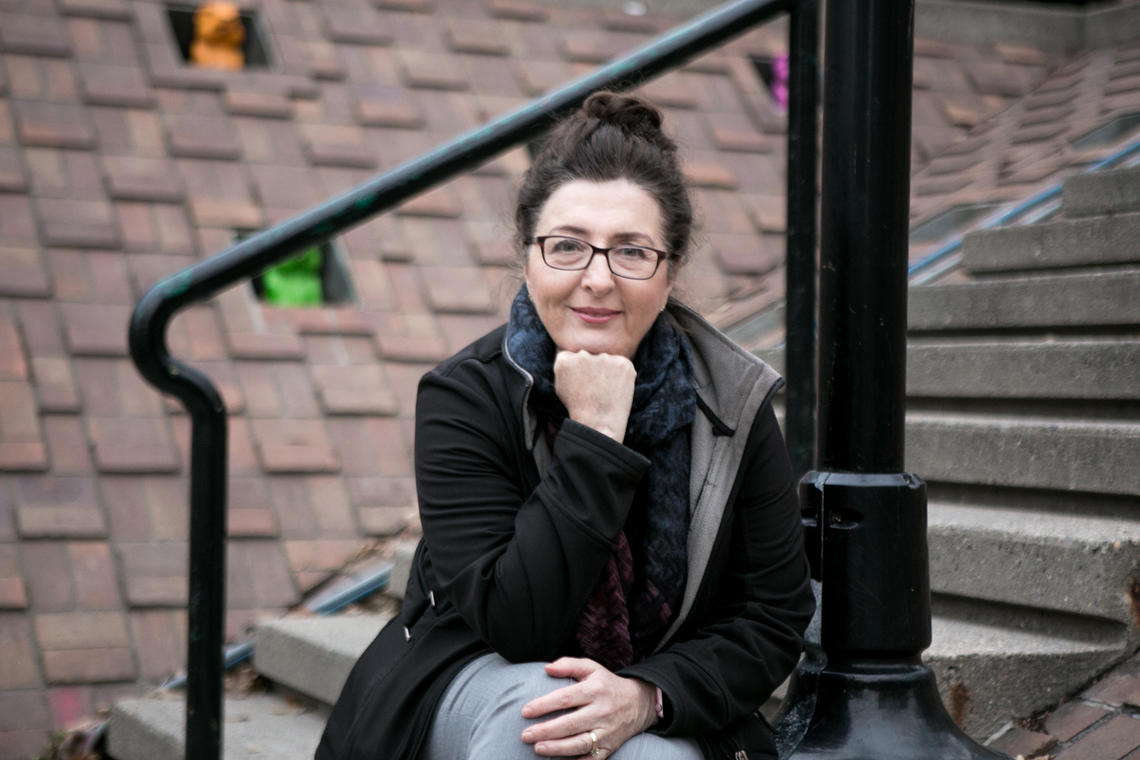Nov. 18, 2020
Leveraging data for your career, practice and organization

We live in an increasingly data-driven world. It seems like everything in modern life collects and uses data – from our cellphones and smart watches to our fridges and smart home systems. Not surprisingly, social work is also increasingly becoming data driven.
Irene Hoffart, MSW’92, Leadership, is at the forefront of the data revolution, and for decades she’s been supporting the profession to become more evidence-informed.
“The bottom line is that data is power” says the CEO of Synergy Research Group. “Information is power in every way. Working with partners. Working with funders. But also, for all of us as social workers. We want to know that what we're doing is working. I think it also empowers us as professionals and injects meaning into our work. We’re not just responding to crises all the time – we're also creating some significant shifts.”

"We want to know that what we're doing is working. I think it also empowers us as professionals and injects meaning into our work. We’re not just responding to crises all the time – we're also creating some significant shifts.”
Kloie Picot: One Shot More
An evidence-informed approach is a way of life for Hoffart who has spent most of her career helping human service organizations to create these “significant shifts” as they work toward their organizational goals. Her company, Synergy Research Group, has worked with literally hundreds of large and small organizations in nearly every human-service-related sector: from municipalities to the education sector, to shelters, healthcare, senior-serving agencies, NGOs and many, many more.
Hoffart points out that sometimes social work as a discipline and social workers aren’t taken as seriously as other professionals, “especially when we as social workers, don't show that we know what we're doing, and why we're doing it,” she says. “That it's not all based on our feelings and what we think is going on, but we know what's going on. If we can come forward with that kind of certainty about our work, then we can be more proactive and credible in the community.”
She adds that leveraging information – evidence – also allows social workers and agencies to be more proactive with donors, “when a program or an agency develops information-based programs that are well conceptualized, and its service delivery is strategic and grounded in continuous learning, they can say, ‘I know what I’m doing, why I'm doing this and I can demonstrate results.’”
“when a program or an agency develops information-based programs that are well conceptualized, and its service delivery is strategic and grounded in continuous learning, they can say, ‘I know what I’m doing, why I'm doing this and I can demonstrate results.’”
Evidence informed journey began with MSW in leadership
Hoffart’s social work mission to harness data began when she was taking her Master of Social Work in Leadership (at the time it was called management.) She says that’s when she got interested in data analysis, evaluation and action-based research. Almost right away she discovered there was a thirst for evidence-informed approaches in the social work community.
“I started doing that work while I was doing my masters,” she says, “and I've never looked back. I've always consulted, and I've not really ever had a nine-to-five job. It’s been just awesome – in terms of what I was hoping to achieve for my clients, and in terms of supporting and building the credibility and professionalization of social workers and the work that we do. It's really about using data to support our work.”
Synergy Research Group uses information in a variety of ways including program evaluation, developing frameworks to guide continuous organizational learning, survey development, as well as distribution, gathering and analysis which supports program results and development. Overall, she describes her big shift as moving whole organizations - not just programs - towards becoming learning organizations.
“Gathering data and using it to inform program development, advocacy and reporting. Ultimately, though, it is more about bringing the whole organization together to start speaking with a common language about what we’re doing and why, and the results we're getting.”
Dec. 3 presentation aimed at current students and working professionals
During her lunchtime presentation on December 3, at noon, Hoffart says she’ll speak about the importance of data to social workers and human service organizations. She’ll also speak to students about careers that leverage data to better inform practice and organizations. Her webinar is free to everyone; however, you need to register first.
“Why would people come to the webinar?” She says. “As social workers we can do more than just frontline or clinical work. We can also be in the places where decisions are made. We can be prominent and empowered in the community. I think relying on accurate and comprehensive information and being grounded and committed to ongoing learning throughout your career is what helps us do that.”
